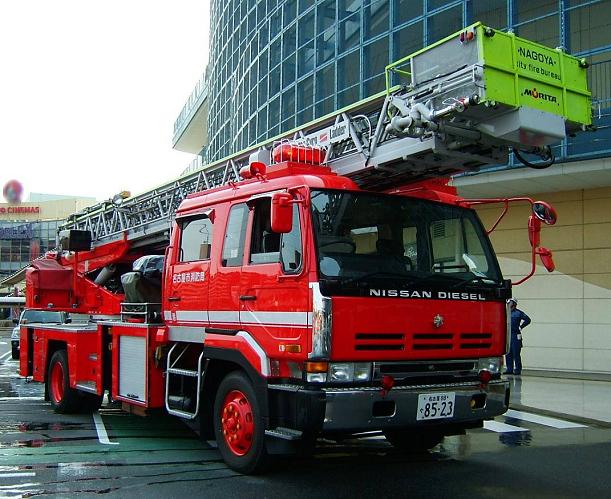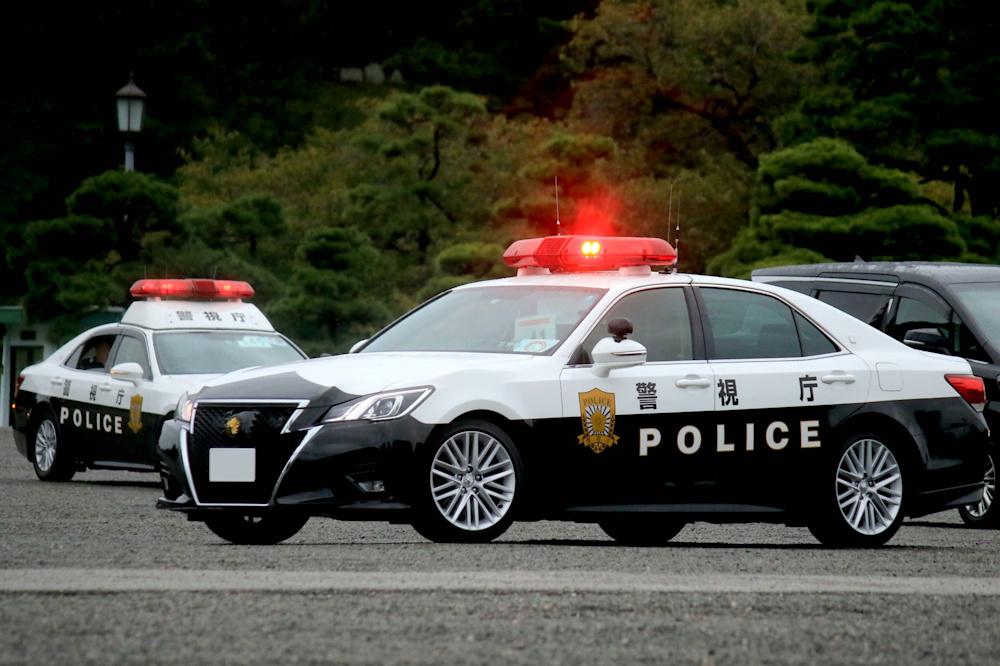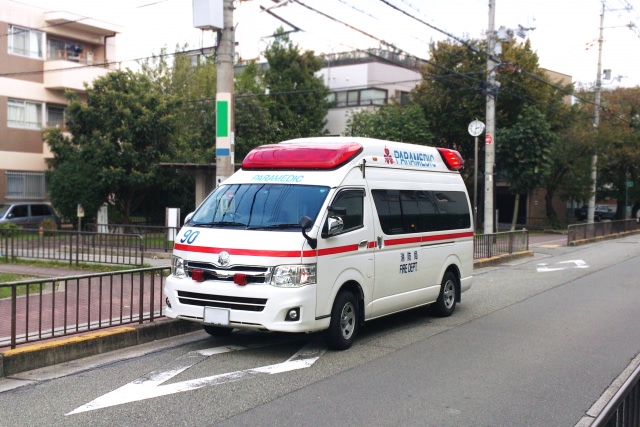Updated January 14, 2025
Emergency Contact Numbers in Japan: How to Contact the Authorities
Living in Japan is a wonderful experience, but like anywhere, emergencies can happen, so you should be prepared.
Knowing the right emergency numbers and what to do in an urgent situation could make all the difference when you or someone else needs help, so the first thing you should do is memorize your emergency numbers.
This guide will walk you through Japan's emergency contact numbers, services available, communication tips, and essential steps to take during emergencies, all tailored specifically for foreign residents.
Let's get you prepared for anything Japan might throw your way.
In this article: 📝
Japan Emergency Numbers: A List
Japan has a variety of emergency numbers for different situations. Understanding these numbers and when to use them is key to ensuring you get the help you need as quickly as possible.
Police (110): If you need to report a crime, a traffic accident, theft, or any incident requiring police intervention, dial 110. This number is strictly for emergencies.
Fire or Medical Emergencies (119): For emergencies involving fires, sudden medical issues, accidents, or rescues, dialing 119 will immediately connect you to emergency services. Operators will assess the situation to dispatch either fire trucks, ambulances, or both ensuring the appropriate response for the specific emergency.
Maritime Emergencies (118): If an emergency occurs at sea, such as a boating accident or a person in distress on the water, dial 118 to contact the Japan Coast Guard. Their teams are trained in maritime rescues, vessel-related incidents, and responding to environmental threats at sea.
Non-emergency Medical Consultation (#7119): When you're uncertain if an ambulance is required, dialing #7119 provides access to medical advice. This service is especially useful for minor injuries or illnesses, offering guidance to avoid misusing emergency resources.
Non-emergency Police Consultation (#9110): Similar to the number above, if you're uncertain if a situation requires notifying the police forces, you can call #9110 and consult the police. Keep in mind that this number is not for emergencies.
Police Consultation in English (03-3503-8484): As a foreigner, you might feel more comfortable speaking in English to the authorities. To consult the police about a matter, using this English hotline can get you faster answers.
Reporting Child Abuse (189): Regardless of their status, every child is entitled to safety and welfare. If you suspect that a minor is a target of abuse, you can report such cases by dialing 189.
Disaster Line (Dial 171): When disasters such as earthquakes happen, call the 171 Disaster Line, which is a message board where you can leave a voice message or listen to voice messages left by friends or family. This line is only available when you’re in an area where it’s difficult to make a phone call due to a disaster, and numbers with other area codes cannot be registered. To leave a message in case of emergency, dial the number, then dial 1 and enter your family member’s number, starting with the area code. To listen to messages left to you, dial the number, dial 2 this time right after, and enter your phone number.
For Mental Health Emergencies
Mental health emergencies are just as important as physical emergencies, and getting help quickly can make a big difference.
In case of mental health-related crises, services like Tell Japan provide support. It's helpful to have these contacts handy, especially if you're experiencing emotional distress or need guidance.
Tell Japan can provide you with long-term counseling via phone or video chat. They also have a lifeline for emergency calls if you seek immediate help.

Does the Japanese Emergency Number Provide English Support?
“Does Japan 911 speak English?” is a common question among foreign residents.
While emergency operators primarily speak Japanese, many centers have access to interpreters who can assist in English. They can connect you to a third-party interpreter service so that you can state your emergency in detail. Most municipalities support English, in addition to a few other common languages like Chinese.
That being said, it’s good to keep in mind that the response times for getting an English-speaking operator may vary, and in some cases, this can take significantly longer than getting help in Japanese.
Therefore, it's helpful to learn a few key Japanese phrases to communicate the basics until assistance arrives or when you’re in a situation without language support.
If you're wondering how common English is in Japan generally, our article “Do people speak English in Japan?” will answer that question.
Basic Japanese Phrases To Use in Case of Emergencies
Learning these phrases and keeping them accessible on your phone can be invaluable in ensuring that you receive the necessary assistance as quickly and efficiently as possible.
In case of fire: "Kaji desu" (火事です) – There’s a fire.
In case of medical Emergency: "Kyūkyū desu" (救急です) – It’s a medical emergency.
To ask for help: "Tasukete kudasai" (助けてください) – Please help me.
To ask where you are: "Koko wa doko desu ka?" (ここはどこですか?) – Where am I?
To ask for an ambulance: "Kyūkyūsha wo onegaishimasu" (救急車をお願いします) – Please send an ambulance.
When someone is unconscious: "Dareka ga ishiki fumei desu" (誰かが意識不明です) – Someone is unconscious.
To report a car accident: "Jiko ga okimashita" (事故が起きました) – There’s been a car accident.
When Should I Call The Japan Emergency Services Number?
In a state of shock, it's normal to question whether the situation you're in is an emergency and if you should even bother the authorities. Let’s give a few examples of situations where calling the authorities is absolutely warranted.
For one, if you ever witness or experience incidents such as theft, assault, traffic accidents, or any other criminal activity that requires immediate police attention, call 110, the emergency police number.
If you see a fire, if someone suddenly falls ill or gets severely injured, or if you find someone unconscious and non-responsive, you should definitely call 119, the number for ambulance and the fire station.
If you witness a boating accident or see someone drowning or in distress at sea, don’t hesitate to dial 118, the number for maritime emergencies.
Other than this, another emergency you might want to be vigilant about is child abuse. If you witness a child being abused in any way, shape, or form, call the police, or 189, which is the phone number to report child abuse.
Emergency Response Vehicles: Who Will Come To My Aid?
When you call for emergency services in Japan, the vehicle type dispatched depends on the nature of the crisis.
If you require police intervention, patrol cars or motorcycles will be sent to your location. These vehicles can get to you quickly in both urban and rural areas.
For fire emergencies, specialized fire trucks are deployed. Ladder trucks are essential for reaching high-rise buildings, while pump trucks carry advanced firefighting equipment to manage fires of varying scales.
In medical emergencies, ambulances arrive equipped with essential tools and staffed by professionals trained to stabilize patients en route to the hospital.
Depending on the case, some situations may call for both an ambulance and a firetruck. You usually don't need to ask for both – the emergency services will figure out what to send.
Keep in mind that you won’t have to pay for the ambulance or the fire trucks that arrive. Of course, if you need medical treatments, this will result in some costs, but it’s important to note that the emergency services are free of charge.
To learn more about the medical care system here, check out our guide to healthcare in Japan for expats.
What To Confirm On The Phone With Japan Emergency Hotline

When you contact an emergency service, it’s vital to provide concise and accurate information to ensure help arrives as promptly as possible.
One of the first questions to ask is about the estimated time of arrival. Knowing this allows you to prepare and address immediate risks, which is especially crucial in medical emergencies where every minute counts.
Additionally, before you hang up the phone, ask what you can do while waiting for emergency personnel to arrive. Operators may instruct you on essential actions such as performing basic first aid to stabilize an injured person, turning off electrical appliances to prevent fire hazards, or evacuating to a safer location.
They might also advise you on how to best communicate with responders upon their arrival, such as signaling them to the exact location or providing further updates on the situation.
Things to Do After Calling Japan Emergency Phone Numbers
Once you've contacted emergency services, there are additional steps you should take to ensure everything is handled smoothly and efficiently.
For instance, if you are traveling, contact your travel insurance provider as soon as possible. Notifying them about the incident ensures that you get the support you need, whether it's covering medical expenses or assisting with transportation to a hospital.
Many insurance companies have 24/7 hotlines specifically for emergencies, so keep this number handy.
Another important step is to inform your country’s embassy or consulate, particularly if your situation involves hospitalization, legal issues, or a need for evacuation. The embassy staff can provide vital support such as helping with language barriers, contacting family back home, or arranging repatriation if necessary.
While waiting for the responders, follow their instructions carefully. As we mentioned, they might guide you on actions like administering basic first aid.
Lastly, consider documenting key details about the incident, such as the basic timeline of events, the people involved, or any other recommendations provided by emergency personnel.
This information can be crucial for insurance claims or follow-up communications with the authorities, as well as for identifying perpetrators if an active crime is committed or helping the person in the hospital receive the right medical care.
Alternative Options If You Don’t Have The Means To Call Japanese Emergency Numbers
If the phone lines are busy or you don’t have access to a phone, here are some alternative ways to get help when you're in an emergency.
Use Public Telephones: In Japan, public telephones allow free calls to emergency numbers. All you need to do is pick up the receiver, dial the appropriate number, and you will be connected to the emergency services in no time. Public phones can be typically found in stations, parks, and outside convenience stores.
Visit The Nearest Kōban (Police Box): Kōban are small neighborhood police stations Scattered throughout Japan. If you're unable to reach emergency services, you can go directly to the nearest one for immediate assistance. Officers stationed there can help contact emergency services on your behalf.
Ask Bystanders for Help: If you're in a public place and in no condition to dial the emergency number yourself, ask those around you for assistance. Don't worry, many Japanese people are willing to help and some may even speak enough English to assist you in making the call. Use simple phrases such as “助けてください! (Tasukete Kudasai!)” to ask for help in a clear manner.
Step-By-Step: How To Call an Ambulance in Japan?
While many emergency operators in Japan can access English interpreters, there might be instances where communication in Japanese is necessary. Knowing the basic steps below and phrases can help ensure your call is successful.
Dial 119 and State Your Emergency
When calling for fire or medical assistance, dial 119 and clearly state the nature of the emergency. For a medical situation, you can say:
“Kyūkyū desu” (救急です) – This means, “It’s a medical emergency.”
If reporting a fire, you can say this phrase in addition or instead of:
“Kaji desu” (火事です) – This means, “There’s a fire.”
It's important to open with these phrases and be as clear and coherent as possible when doing so. This opening phrase alerts the operator to the type of response and help needed and sets the course for the rest of the recall.

Provide Your Location
Upon stating your emergency, the operator will ask for your location. You can begin with the sentence below:
“Jūsho wa ~ desu” (住所は~です) – This means, “The address is ~.”
If you're not at your home address, then it might be a good idea to describe the nearest landmark or recognizable location, such as a train station or bus stop. For instance:
“Eki no chikaku desu” (駅の近くです) – “I am near the train station.”
To ensure accuracy, it's a good idea to memorize or keep a written note of your address and commonly visited places in phonetic Japanese.
Keep in mind that if you’re using a public phone, giving your address may not necessarily be required, as they can locate calls coming from stationary phone booths.
Describe The Symptoms or The Situation
Next, it's time to explain the nature of the problem using simple phrases. Here are examples of common medical symptoms you can use to at least let them know of the main issue.
Unconscious: 意識不明です (Ishikiumei desu)
Bleeding: 出血しています (Shukketsu shiteimasu)
Chest pain: 胸が痛いです (Mune ga itai desu)
Headache: 頭痛です (Zutsuu desu)
Broken bone: 骨折です (Kossetsu detsu)
Abdominal/stomach pain: 腹痛です/胃痛です (fukutsuu desu/itsuu desu)
Pregnancy-related issue: 妊娠しています (Ninshin shiteimasu)
Burn: ひどい火傷です (Hidoi yakedo desu)
Allergic reaction: アレルギー反応があります (Arerugi hannou ga arimasu)
Blood in vomit/stool: 吐血です/血便が出ます (Toketsu desu/ketsuben ga demasu)
High fever: 高熱です (Kou netsu desu)
General injury: 怪我です (Kega desu)
Convulsions: 痙攣です (Keiren desu)
Once they receive the initial important information, they can direct you to an interpreter to obtain more details or send help right away.
Give The Operator Your Age
In order to provide better help, the operator will usually ask about the age of the person needing assistance. In Japanese, age is expressed with numbers followed by “sai desu” (歳です).
For instance:
“Go jū go sai desu” (55歳です) – “I am 55 years old.”
Knowing Japanese numbers and memorizing the sentence structure above can greatly streamline the process.
Share Your Name and Contact Information
Providing your name and phone number helps emergency responders reach you or contact you for further instructions. To share your contact information and name, simply use the following phrases:
“Watashi no namae wa ~ desu” (私の名前は~です) – “My name is ~.”
“Denwa bangō wa ~ desu” (電話番号は~です) – “My phone number is ~.”
Just as it’s important to be able to state your age in Japanese, it’s also vital to be able to provide your phone number in times of distress, which further emphasizes the importance of learning the numbers in Japanese.
Wait and Prepare for The Emergency Personnel
Once you complete the call, keep your phone nearby in case the operator needs to call back for any clarifications.
While waiting, position yourself in a visible spot, such as outside the building. To guide the responders, wave or signal them as they arrive to ensure they locate you quickly.
Conclusion: So, What Happens If I Have a Medical Emergency in Japan?
Learning the emergency numbers is essential if you want peace of mind during your stay in Japan. Save these numbers on your phone, keep a physical note in your wallet, and practice key Japanese phrases to communicate effectively during an emergency.
Remember that staying calm and collected, providing clear information, and following instructions will significantly impact the response you receive. You are in good hands – Japan's emergency response teams are highly trained and efficient.
As long as you remember to dial 119, you’ll get the help you’ll need in no time!
Our article on the best English-speaking hospitals in Tokyo for foreigners is another invaluable resource, as it’s always good to know where you can get the best help when you fall ill.
Get Job Alerts
Sign up for our newsletter to get hand-picked tech jobs in Japan – straight to your inbox.







